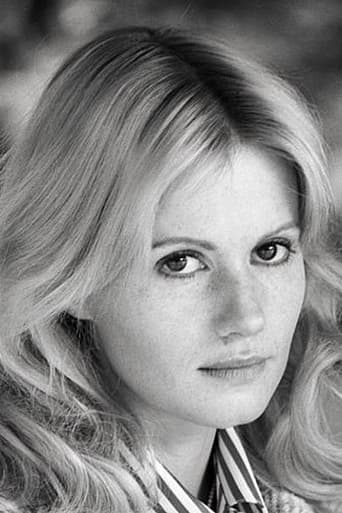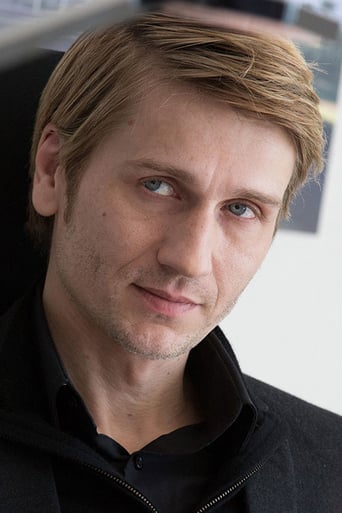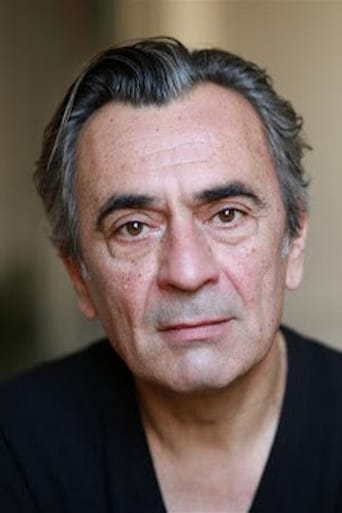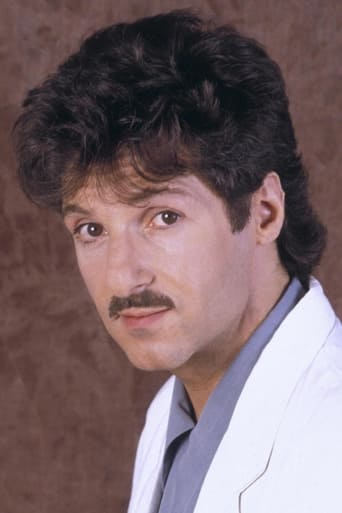BoardChiri
Bad Acting and worse Bad Screenplay
KnotStronger
This is a must-see and one of the best documentaries - and films - of this year.
Brenda
The plot isn't so bad, but the pace of storytelling is too slow which makes people bored. Certain moments are so obvious and unnecessary for the main plot. I would've fast-forwarded those moments if it was an online streaming. The ending looks like implying a sequel, not sure if this movie will get one
Kinley
This movie feels like it was made purely to piss off people who want good shows
Armand
Sad, melancholic, nostalgic and soft.A film about illusions and impossibility of escape. Description of failure and ambiguous expectation. French flavor and marks from Pasolini, empty universes and slices of love, game without innocence and failure of dreams.A world, a small world where the work is only real refuge. Where the memories or the projects are shadows of a lost time and a bovaric certitude.Delicate and tender, subtle and innocent, this film is a pledge for discover the sense of existence. The image of war with the other or with yourself, the fear like basic answer to the movement of time, the questions like skin of interior fog, the presence of temptation in the person of an androgynous teenager, the looks, deceptions or infidelity are elements of ordinary life. For everyone, "The Queens of Night" are key to a second chance, to a form of happiness. But always, the happiness is puzzle of illusions and the old rules are more strong that any form of seduction. In final, the corpse of a gorgeous dream like only "souvenir" of a perverse form of normality.
writers_reign
It's impossible - for me at least - to know whether or not Ann Fontaine was familiar with Joe Orton's sixties play Entertaining Mister Sloane (subsequently filmed)before writing and directing Nettoyage a sec some thirty years later but it is reasonable to assume that the central premise - bi-sexual catalyst male enters and ultimately disrupts household via sexual encounters with both male and female - is very similar with, in the case of the latter, a Gallic twist. Orton's protagonist disrupted a home occupied by a brother and sister both childless whilst Fontaine's shares a home with a married couple who have a child. There are, of course, other substantial differences, where Mr Sloane came, as it were, out of nowhere, Loic (Stanislas Merhar) is first encountered by Nicole (Miou-Miou) and Jean-Marie (Charles Berning) Kunstler in a club where he is performing a cross-dressing act with his sister Marilyn (Mathilde Seigner)and only goes to live with the Kunstlers some time later when Marilyn leaves both him and the act in favour of life with her boy friend. The Kunstlers have been married for some fifteen years and it may be said that the marriage has become as 'dry' as the dry cleaning business they own and is in need of sexual 'cleaning'. If so they came to the right place for the amoral Loic is happy to oblige, first by seducing Nicole - not terribly difficult as she was ripe for seduction - and then, with less success, Jean-Marie. What we have here is a fine, tightly written and directed script acted to perfection by the three principals and arguably the finest of Fontaines early films - Berning would later appear in her How I Killed My Father. Very definitely worth seeing.
dbdumonteil
Spoilers..."Dry cleaning", that's what the title of this Anne Fontaine's effort means in English and it's a well-appropriated one to qualify the contents of the story she tells the audience. Its bulk essentially occurs in a dry-cleaner whose purpose is to clean the customers' clothes but the director prefers to soil her couple's clear conscience as well as their moral, sexual conventions.Could this film be a crossing between Claude Chabrol's universe and Pier Paolo Pasolini's film "Theorema" (1968)? It's highly possible and they're respectable credentials for this novel, idiosyncratic film. The first one for the provincial backdrop and a dash of gastronomy. The author of "le Boucher" (1970) and "les Noces Rouges" (1973) excelled when it came to depict vignettes of provincial life, in the Kunstler's shop and apartment but also in the town itself. Anne Fontaine just has to describe with just a few features, the gloomy aura which reigns in Belfort. And the second reference for of course the story of the film which bears a strong resemblance with Pasolini's opus: both introduced a young man who subverted a comfortable universe and caused damage in them. "Nettoyage à Sec" could be an updated version of "Theorema".Loïc is the disruptive element in the Kunstler's "petit bourgeois" world. More than this, he's the catalyst of their buried desires and passions. Before making their dreary universe with its constricting etiquette falter in the dry-cleaner's, he will at first indirectly galvanize them to accomplish their desires. The week-end in Bâle, unusual in the couple' life is a proof of it. Before this, one of the key sequences is the one when the four protagonists are together in the hotel room because in this moment, the persona of Jean Marie and especially Nicole is well construed and defined. It's necessary to steer well the evolution and crucial steps of the story. Nicole makes love with Loïc and it's a sign that she's tired of her life and is ready to go in a new direction. Later, Fontaine will intersperse her film with conspicuous signs which don't fool anyone. See the scene in the restaurant: she confesses to her husband that she doesn't feel courageous enough to carry on her nine-to-five life in the dry-cleaner's. She's on the verge of packing in. Jean-Marie's answer is meaningful: "however when we started, you wanted to be the first one to help me to settle here...". So, it seems perfectly logical that later she accepts Loïc's advances. As for Jean-Marie, he appears hesitant and undetermined but maybe would he like (unconsciously or not) change his life in spite of an eloquent sequence: when he takes Loïc downstairs to show him concrete memories of his first years spent in the shop. Memories to which he is deeply attached...Loïc's demeanor is rather elusive and it's hard to decipher his mainspring. Is it because he lost his closest human being in the world (Marilyn) that he settles to Nicole and Jean-Marie? Is he sick of his nomad life despite what he says to the couple? By enticing the couple, does he try to fulfill an affective gap in his life? It was shrewd from Fontaine to make opaque his motivations. Thus, he keeps all his mystery. It was also clever from the director to have chosen evocative colors for her film and she's got a sense of light. The white of the dry-cleaner's sharply contrasts with the half-murky, dimly light rooms in the apartment, especially when Loïc is in these rooms. This to underscore that the life of the couple with Loïc's intrusion goes bit by bit unravel. She also has the gift to build her film on a relentless crescendo and to shroud it with an increasingly latent, ominous tension. A tension caused by several factors: disquieting moments or lines pronounced by Loïc, by the contrast between the appearance the couple gives to the customers and employees and what lies beneath this when they are in the apartment with Loïc, especially when the latter finds himself with Nicole. And it won't take long for Jean Marie to discover their love affair. But also with Jean-Marie's tantrums he has to try to resist to the strange attraction he feels for Loïc. His short wild mood swings are the result of a sexual repression he vainly wants to conceal. Loïc will feel it very well in the inevitable sequence in which he will try to sodomize him (a violent one which packs a real wallop). After this scene, one could argue that the couple came back to where they started but in worse: Nicole and Jean-Marie are destroyed.The acting is uniformly good and largely lives up to the demands of the scenario. The type of character of each actor of the quartet complements one another. Although the film really put Mathilde Seigner on the map, it's her coy, brazen partner Stanislas Mehrer who gets the lion's share. I don't put Charles Berling and Miou-Miou in my straitjacket of favorite French actors but here, I was very taken with their acting."Nettoyage à Sec" has a taut, well-constructed scenario in which every step of the story rings true. It's an unsettling piece of work which leaves indelible stains. It may also walk a fine line with works like "Harry: Un Ami Qui Vous Veut Du Bien" (2000) by Dominik Moll which could be his little brother. I would like to discover Anne Fontaine's anterior and subsequent works to her 1997 film.
Robert Armstrong
Saw a humongously uninspired French movie, Dry Cleaning (Nettoyage a Sec), that the advertisers swear won Cesar awards all over the place, but is just a hodgepodge of every foreign movie cliche that might strike an upscale audience as profound: a sexually ambiguous stranger insinuates himself into the lives of a married couple, engaging them in sexual games that bring them to the brink of self-destruction. She's desolate without the young man; the husband wrestles with his denial that he's also turned on by the stranger. Of course this is "art theatre," so we are to suppose that every straight man is really a gay man who hasn't found out yet. On the other hand the homosexual aspect of the story becomes the vehicle that carries the husband into his own corner of hell, an idea that seemed arty thirty-odd years ago (The Sergeant; The Children's Hour) but now is just insulting to gays. And of course the story is dotted with major and minor sexual interludes and taunts, but relationships are left to angry, dissatisfying silences between not-particularly-interesting characters. Story elements are offered that suggest the plot could go somewhere else but instead lead nowhere (the young man's sister leaves and conceivably might return looking for him; the young man has genuine talent as a dry-cleaner and might make a life for himself beyond his "drifter" existence; the married couple thinks about moving to Canada). I think the filmmaker has a long way to go in justifying why he wanted to make this movie -- what he thought would make this film extraordinary compared to some other story about dissolving marriage or sexual curiosity. Imagine La Strada if Anthony Quinn just sat around and brooded. If Thomas Mann had written Dry Cleaning it would be called Death in Suburbia: except that, speaking strictly for myself, I think it's the audience that dies.





